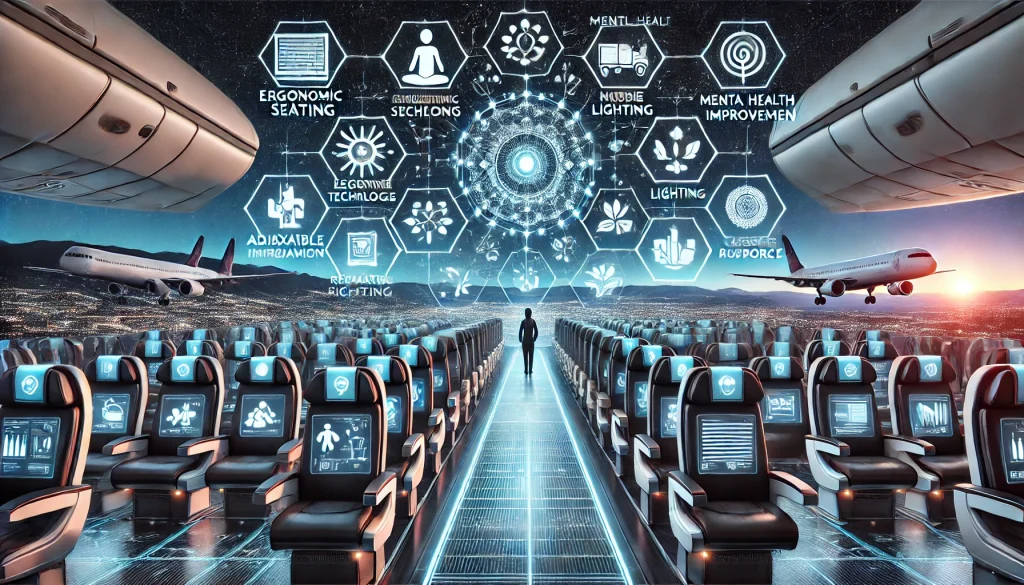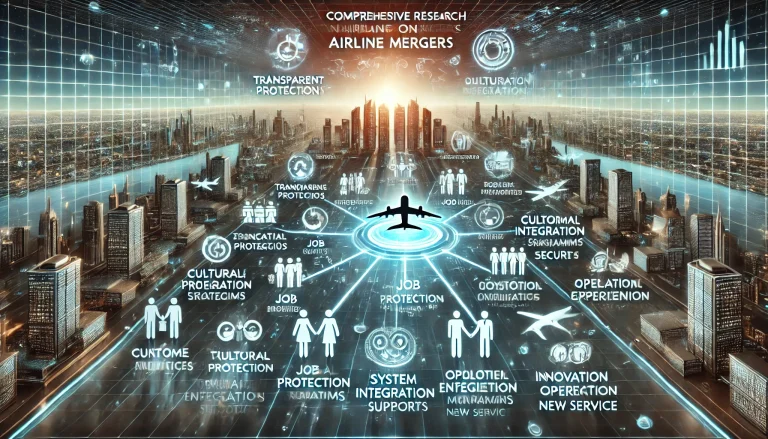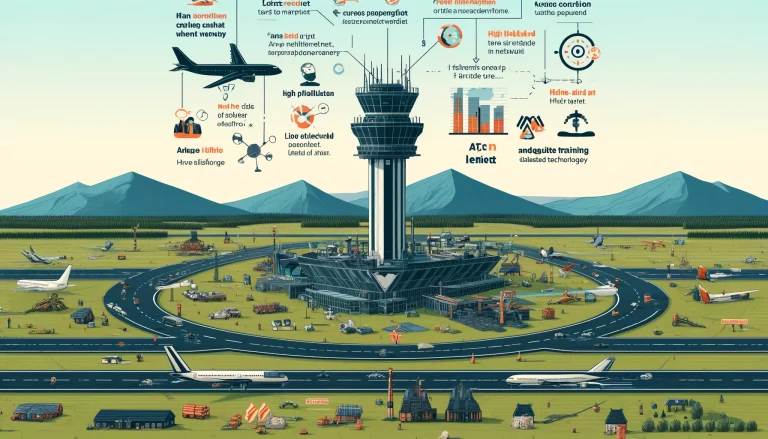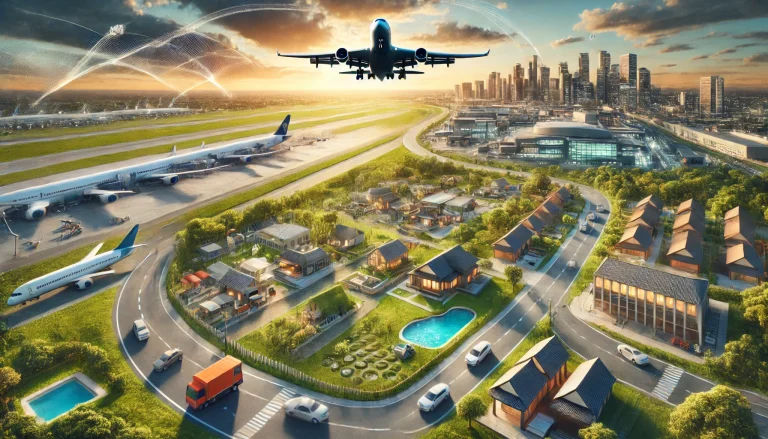Problem Statement
The experience of air travel, particularly on long flights, can be taxing on passengers’ mental health. Factors such as prolonged confinement, changes in cabin pressure, disrupted sleep patterns, and the general stress associated with traveling can contribute to anxiety, stress, and other mental health challenges. As the complexity of air travel continues to grow—due to increased security measures, crowded airports, and the added strain of navigating through COVID-19 protocols—passengers are increasingly at risk of experiencing mental health issues during their journeys.
Airlines face the challenge of creating environments that mitigate these negative impacts and provide adequate support for passengers who may experience mental health challenges. This requires a multi-faceted approach that includes improving in-flight conditions, training staff to recognize and respond to mental health issues, and offering resources to support passengers’ mental well-being.
In-flight conditions play a critical role in influencing passengers’ mental health. Factors such as seating comfort, cabin noise levels, lighting, and air quality can either exacerbate or alleviate stress and anxiety. Airlines must invest in creating cabin environments that promote relaxation and comfort, which may include designing more ergonomic seating, providing noise-canceling headsets, adjusting cabin lighting to reduce fatigue, and ensuring good air circulation.
Staff training is another essential component. Flight attendants and other airline personnel need to be equipped with the knowledge and skills to recognize signs of mental distress in passengers and respond appropriately. This could involve basic training in mental health first aid, communication techniques for calming anxious passengers, and protocols for managing more severe mental health crises.
Finally, airlines can provide mental health resources both on the ground and in the air. This might include offering access to meditation apps, providing information about relaxation techniques, and ensuring that passengers have access to professional mental health support if needed. For longer flights, airlines might consider creating dedicated quiet zones or wellness spaces where passengers can retreat to decompress and relax.
Addressing these challenges requires airlines to prioritize passenger well-being and recognize the importance of mental health as part of the overall travel experience. By doing so, airlines can create a more supportive environment that reduces the stress and anxiety associated with air travel and helps passengers arrive at their destinations feeling mentally and emotionally well.
Pain Points
- In-Flight Stress and Anxiety: Passengers may experience heightened stress and anxiety due to prolonged confinement, disrupted sleep, and other in-flight conditions.
- Crowded Airports and Security: The stress of navigating crowded airports and dealing with complex security measures can negatively affect passengers’ mental health.
- Lack of Mental Health Support: Insufficient resources and support for passengers experiencing mental health issues during their journey.
- Uncomfortable In-Flight Conditions: Factors such as cramped seating, noise, and poor air quality can exacerbate mental health challenges.
- Staff Training: The need for airline staff to be trained in recognizing and responding to mental health issues in passengers.
- Sleep Disruptions: Passengers often struggle with sleep disruptions due to time zone changes, uncomfortable seating, and cabin noise.
- Health Protocols and Stress: Navigating COVID-19 protocols and health measures adds to the complexity and stress of air travel.
- Lack of Quiet Zones: The absence of dedicated spaces for relaxation and mental wellness on long flights.
- Communication Barriers: Challenges in effectively communicating mental health support options to passengers.
- Managing Severe Mental Health Crises: The difficulty in managing severe mental health issues during flights without causing further distress.
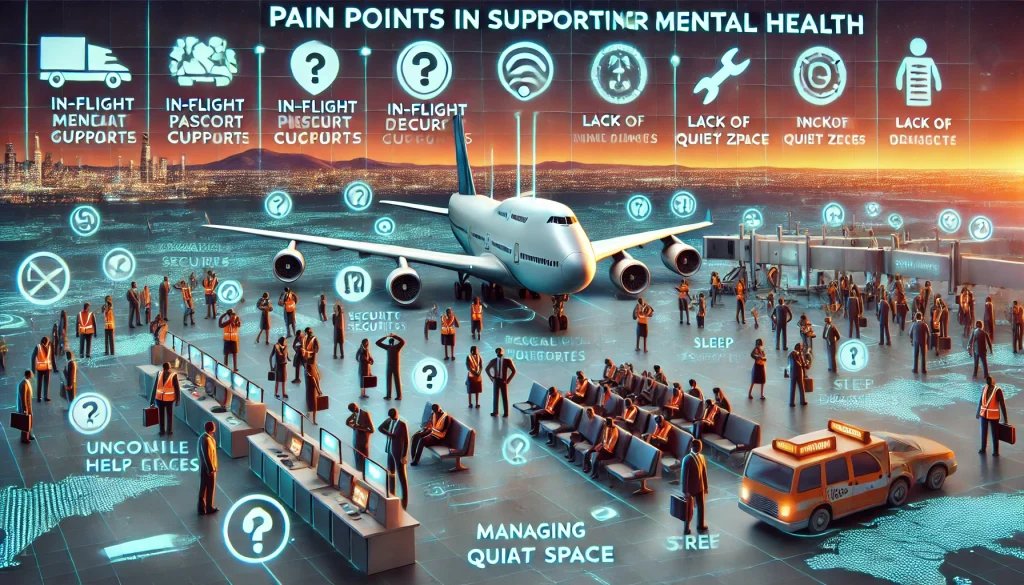
Future Vision
Our platform envisions a future where airlines take a proactive approach to supporting passenger mental health, creating environments that reduce stress and anxiety and providing the necessary resources for those who may experience mental health challenges during their journey.
To achieve this, the platform will advocate for the improvement of in-flight conditions to create a more calming and comfortable environment. Airlines will be encouraged to invest in ergonomic seating, noise-reduction technologies, and adjustable cabin lighting to help passengers relax and reduce fatigue. Additionally, air quality will be enhanced through advanced filtration systems and better air circulation, ensuring passengers feel refreshed throughout their journey.
Staff training will be a key focus, with the platform supporting the development of comprehensive mental health training programs for airline personnel. This training will equip flight attendants with the skills to recognize signs of mental distress, communicate effectively with anxious passengers, and provide basic mental health support. In more severe cases, staff will be trained to manage crises in a way that minimizes disruption and ensures the safety and well-being of all passengers.
The platform will also promote the integration of mental health resources into the passenger experience. Airlines will be encouraged to offer access to relaxation apps, provide information on stress management techniques, and create wellness spaces on long-haul flights where passengers can retreat for quiet and relaxation. Pre-flight communication will include mental health tips and resources, helping passengers prepare for their journey and manage any anxiety or stress they may experience.
Furthermore, airlines will be guided in creating quiet zones or wellness areas on long flights, where passengers can unwind in a peaceful environment. These zones may include comfortable seating, low lighting, and access to meditation or relaxation resources.
Effective communication will be essential in ensuring passengers are aware of the mental health support available to them. Airlines will be encouraged to use multiple channels, such as in-flight entertainment systems, mobile apps, and pre-flight emails, to inform passengers about the mental health resources and support options available during their journey.
By addressing these challenges and prioritizing mental health, our platform aims to help airlines create a travel experience that is not only safe and efficient but also supportive of passengers’ mental well-being. This approach will enhance customer satisfaction, foster loyalty, and contribute to a more positive and inclusive air travel experience.
Use Cases
- Ergonomic Seating: Implementing more comfortable and adjustable seating options to reduce discomfort and stress during flights.
- Noise-Reduction Technologies: Providing noise-canceling headsets and reducing cabin noise to create a more peaceful environment.
- Adjustable Cabin Lighting: Offering lighting options that reduce fatigue and promote relaxation, especially on long-haul flights.
- Air Quality Improvement: Enhancing air circulation and filtration to ensure passengers feel refreshed throughout the flight.
- Mental Health Training for Staff: Equipping airline personnel with the skills to recognize and respond to mental health issues in passengers.
- Relaxation and Meditation Apps: Offering access to apps that help passengers manage stress and anxiety during their journey.
- Quiet Zones on Long Flights: Creating dedicated spaces on long-haul flights where passengers can relax and decompress.
- Mental Health Resources: Providing information and support for managing stress and anxiety, available through in-flight entertainment and mobile apps.
- Pre-Flight Communication: Informing passengers about mental health resources and tips for managing travel-related stress before their journey.
- Crisis Management Protocols: Developing protocols for managing severe mental health crises during flights, ensuring safety and minimizing distress.
Target Users and Stakeholders
- User: Airline Operations Teams, Customer Experience Managers, Flight Attendants, Health and Safety Managers, and IT Teams
- Age Group: 30-60 years
- Gender: M/F
- Usage Pattern: Regular usage for implementing mental health support measures, improving in-flight conditions, and training staff
- Benefit: Enhanced passenger well-being, improved customer satisfaction, and reduced incidents of in-flight mental health issues
- Stakeholders:
- Airlines: Companies that need to provide a supportive environment for passengers’ mental health and well-being during flights.
- Passengers: Individuals who may experience stress, anxiety, or other mental health challenges during air travel.
- Mental Health Professionals: Experts who provide guidance and training for airline staff on managing mental health issues.
- Health Authorities: Regulatory bodies responsible for ensuring that airlines meet health and safety standards, including mental health support.
- Technology Providers: Companies offering solutions for improving in-flight conditions, such as noise-reduction technologies and relaxation apps.
Key Competition
- Emirates: Known for offering luxurious and comfortable in-flight experiences, including ergonomic seating and wellness options.
- Singapore Airlines: Focuses on creating a calm and relaxing environment with advanced in-flight technologies and personalized services.
- Qatar Airways: Invests in improving passenger well-being through comfortable seating, enhanced air quality, and mental health support.
- Cathay Pacific: Provides a range of wellness services, including noise-canceling headsets and relaxation options, to reduce in-flight stress.
- British Airways: Offers comprehensive mental health support through staff training and access to mental health resources during flights.
Products/Services
- Emirates Wellness Services: Providing luxurious seating, quiet zones, and wellness options to enhance passenger comfort and reduce stress.
- Singapore Airlines In-Flight Relaxation: Offering noise-reduction technologies, adjustable lighting, and personalized services for a calm travel experience.
- Qatar Airways Mental Health Support: Implementing comprehensive mental health training for staff and providing access to relaxation resources for passengers.
- Cathay Pacific Noise-Reduction Technologies: Equipping passengers with noise-canceling headsets and offering quiet spaces to reduce stress during flights.
- British Airways Mental Health Training: Training flight attendants to recognize and respond to mental health issues and offering resources for passengers.
Active Startups
- CalmFly: Specializes in creating relaxation and meditation apps designed for air travel, helping passengers manage stress and anxiety.
- AirWell: Develops ergonomic seating and wellness zones for airlines, focusing on passenger comfort and mental well-being.
- MindfulFlight: Offers mental health training programs for airline staff, equipping them with skills to support passengers during flights.
- SoarSafe: Provides noise-reduction technologies and air quality improvement solutions for airlines to create a more peaceful in-flight environment.
- ZenCabin: Focuses on designing and implementing quiet zones and wellness spaces on long-haul flights to promote relaxation.
- HealthJet: Offers a platform for providing passengers with access to mental health resources and support before and during flights.
- AeroCalm: Develops advanced cabin lighting systems that reduce fatigue and promote relaxation, especially on long-haul flights.
- FlyRest: Specializes in ergonomic seating solutions that reduce discomfort and stress during long flights.
- TranquilAir: Provides air filtration and circulation systems that enhance air quality and reduce stress for passengers during flights.
- MediFlight: Focuses on creating crisis management protocols and training for airline staff to handle severe mental health issues during flights.
Ongoing Work in Related Areas
- Ergonomic Seating Research: Exploring new materials and designs for seating that reduce discomfort and support passenger well-being.
- Mental Health Training Innovations: Developing advanced training programs and tools to equip airline staff with mental health support skills.
- Air Quality Enhancement: Innovating in air filtration and circulation technologies to improve the in-flight environment.
- Passenger Wellness Studies: Researching ways to reduce stress and anxiety during air travel and enhance overall passenger well-being.
- Crisis Management Protocols: Creating and refining protocols for managing severe mental health crises during flights.
Recent Investment
- CalmFly: $5M in Series A funding led by venture capital firms specializing in health and wellness technologies, May 2021.
- AirWell: $7.5M in Series B funding led by private investors focused on the aviation industry, September 2020.
- MindfulFlight: $3M in Seed funding led by health tech investors, January 2021.
- SoarSafe: $4M in Series A funding led by venture capital firms, July 2021.
- ZenCabin: $6M in Series B funding led by private equity firms, November 2020.
Market Maturity
The market for mental health support and well-being solutions in the aviation industry is rapidly maturing, driven by the increasing recognition of the impact of air travel on passengers’ mental health. Companies like Emirates, Singapore Airlines, and Qatar Airways are leading the way with advanced wellness services, ergonomic seating, and comprehensive mental health support. Startups like CalmFly, AirWell, and MindfulFlight are pushing the boundaries of innovation with relaxation apps, ergonomic seating, and mental health training programs for airline staff. Significant investments in ergonomic seating research, mental health training innovations, and air quality enhancement technologies are transforming the aviation industry, enabling airlines to create environments that support passengers’ mental well-being and reduce stress and anxiety during air travel. As the market continues to evolve, we expect to see more integrated and advanced solutions that enhance the overall passenger experience and support mental health during flights.
Summary
Long flights, stressful travel conditions, and the increasing complexity of air travel can negatively affect passengers’ mental health. Airlines face the challenge of creating environments that reduce stress and anxiety while offering support for passengers who may experience mental health issues during their journey. This involves improving in-flight conditions, staff training, and providing mental health resources. Our proposed platform leverages ergonomic seating, noise-reduction technologies, adjustable cabin lighting, air quality improvement, mental health training for staff, relaxation and meditation apps, quiet zones on long flights, mental health resources, pre-flight communication, and crisis management protocols to address these challenges. Key pain points include in-flight stress and anxiety, crowded airports and security, lack of mental health support, uncomfortable in-flight conditions, staff training, sleep disruptions, health protocols and stress, lack of quiet zones, communication barriers, and managing severe mental health crises.
Target users include airline operations teams, customer experience managers, flight attendants, health and safety managers, and IT teams, with stakeholders encompassing airlines, passengers, mental health professionals, health authorities, and technology providers. Key competitors like Emirates, Singapore Airlines, Qatar Airways, Cathay Pacific, and British Airways offer various wellness services, ergonomic seating, and mental health support, while startups such as CalmFly, AirWell, and MindfulFlight are driving innovation in relaxation apps, ergonomic seating, and mental health training. Recent investments highlight significant interest and growth potential in platforms addressing mental health challenges in aviation.
By addressing these challenges and leveraging advanced technologies and support systems, our platform aims to help airlines create a travel experience that is not only safe and efficient but also supportive of passengers’ mental well-being. This approach will enhance customer satisfaction, foster loyalty, and contribute to a more positive and inclusive air travel experience.
